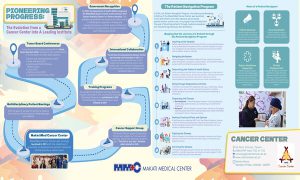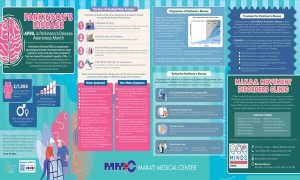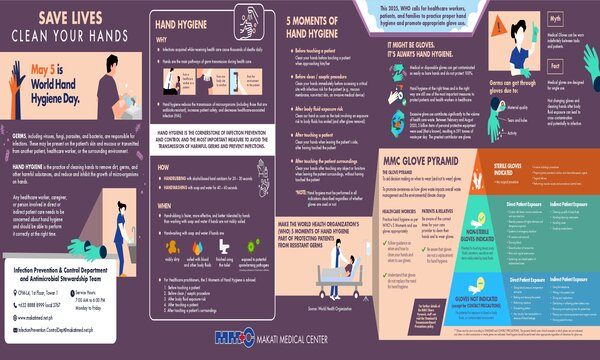Gas can sometimes get trapped in the digestive tract because of certain foods, medical conditions, or eating behavior, such as eating too quickly or accidentally swallowing air while chewing. A person can likewise produce excess gas during the body’s normal digestion process, which leads to bloating and pain. To know how to relieve a gassy stomach, it is important to understand how to manage flatulence resulting from this natural process.
Patients can manage a gassy stomach at home using items they may already have in the kitchen. This article explores the many ways to do it, as well as the instances wherein one should already seek medical help.
How to Relieve a Gassy Stomach?
When the carbohydrates in a consumed meal are fermented by bacteria, gas is formed. Carbohydrates such as fiber and certain sugars pass through the large intestine, where the gas ultimately forms, and it often remains there until the patient passes it through flatulence.
Certain foods can cause gas buildup in the stomach more than others. Some of these are:
- Beans
- Carbonated drinks
- High-fat foods
- Spicy or fried food
- Food with lactose, such as milk and cheese
Medical conditions can also lead to gassy stomachs, such as gastroesophageal reflux disease (GERD), constipation, and gastroparesis.
To release the gas forming in your stomach, consider the following remedies:
1. Drink peppermint or chamomile tea
Peppermint oil can effectively relieve feelings of a gassy stomach and flatulence because it is an antispasmodic. These substances relax the involuntary muscles of the bowel wall, making it much easier for gas to pass through.
Another substance that can aid with stomach gas symptoms is chamomile. It has long been known to have beneficial effects on gastrointestinal issues, with a study citing it treating flatulence, diarrhea, nausea, and indigestion, to name a few.
2. Dilute a tablespoon of apple cider vinegar
One can use apple cider vinegar to treat gassiness, since it encourages the stomach to produce more acid and digestive enzymes. Diluting the apple cider vinegar is important because it is a mild acid known to cause burns, such as in the esophagus or skin, for topical applications.
3. Take deep breaths
Taking deep breaths is an easy way to reduce abdominal pain, including feelings of bloating. These deep breaths gently massage the intestines and stomach to aid digestion. Deep breathing also relaxes the body and activates the parasympathetic system, allowing the body to digest better.
4. Do light physical activities
Studies found that short-term physical activities after meals can relieve bloating and flatulence. Walking around the house, for example, can assist in reducing gas from the stomach while keeping active at home.
5. Take over-the-counter (OTC) medicine
Simethicone is a popular OTC gassy stomach medicine that can help relieve symptoms. This medication gathers the gas bubbles in the stomach and releases them much more quickly, allowing the patient to feel better faster.
But before taking any medication, it is highly recommended to consult with a medical professional first, especially during the first occurrence of a gassy stomach. Just as well, home remedies may only be effective up to a certain point.
When to See a Doctor About a Gassy Stomach
Having a gassy stomach for a prolonged period could indicate a more serious, underlying medical condition that one must have checked. For instance, persistent flatulence may indicate food indigestion.
If any of the following symptoms develop, it is crucial to speak with gastrointestinal and endoscopic specialists:
1. If your gassy stomach is associated with vomiting
Vomiting is a reflex the body does to expel potentially harmful substances quickly. If one vomits and has a gassy stomach, they should receive immediate medical attention. If the vomit contains blood, patients must promptly contact a doctor. It can indicate a serious gastrointestinal ailment that has to be treated right at once.
2. If you experience sudden weight loss
Gassy stomachs can affect a patient’s appetite, and a persistent gassy stomach could lead to weight loss relatively quickly. While these signs can occur by themselves, appearing together could indicate a serious medical concern, such as food poisoning, peptic ulcers, infections, and even stomach cancer.
3. If you suddenly feel heartburn
Although heartburn and a gassy stomach can occur separately, there are times when a patient may experience them at the same time. Heartburn and a gassy stomach are potential signs of overeating or eating too quickly.
Additionally, drinking carbonated, alcoholic beverages quickly can trigger these effects. In some cases, burps from these drinks can worsen heartburn.
4. If you begin experiencing diarrhea or constipation
A prevalent, often lifelong medical disorder that affects the digestive tract is irritable bowel syndrome (IBS). Its distinguishing characteristics are alterations in bowel movements, such as diarrhea, constipation, and a gassy stomach. Since there is yet to have a cure for IBS, visiting a doctor is important to help manage the symptoms.
5. If it is associated with blood in the stool
A patient’s stool and bowel movements can measure their overall health. Excessive flatulence and blood in the stool can indicate a significant health concern. When possible, patients must contact a medical professional to have their digestive tract checked.
Clear the Air About Gassy Stomachs
A gassy stomach in and of itself is often no cause for concern because it is a natural part of the body’s digestion process. However, prolonged flatulence and bloating can become uncomfortable and may be pointing to more serious health issues.
Besides understanding the food that fits one’s dietary needs to avoid gassy stomachs in the future, it also benefits patients to contact a doctor for professional treatments.
Makati Medical Center’s gastroenterology and endoscopy services are world-class. With these services, one can treat simple and complex gastrointestinal conditions. The Center also offers patients access to other centers, including preventive health, clinical trials, and nutrition, to prevent medical issues from occurring again. Reach out to us today to learn how we can help!











